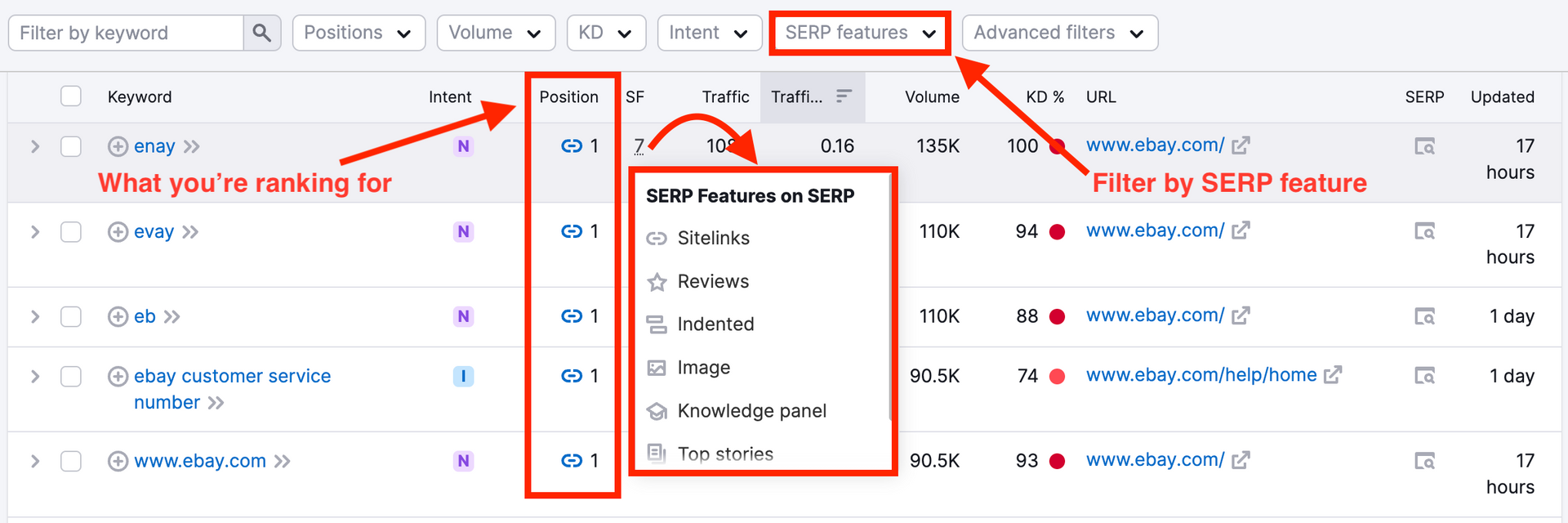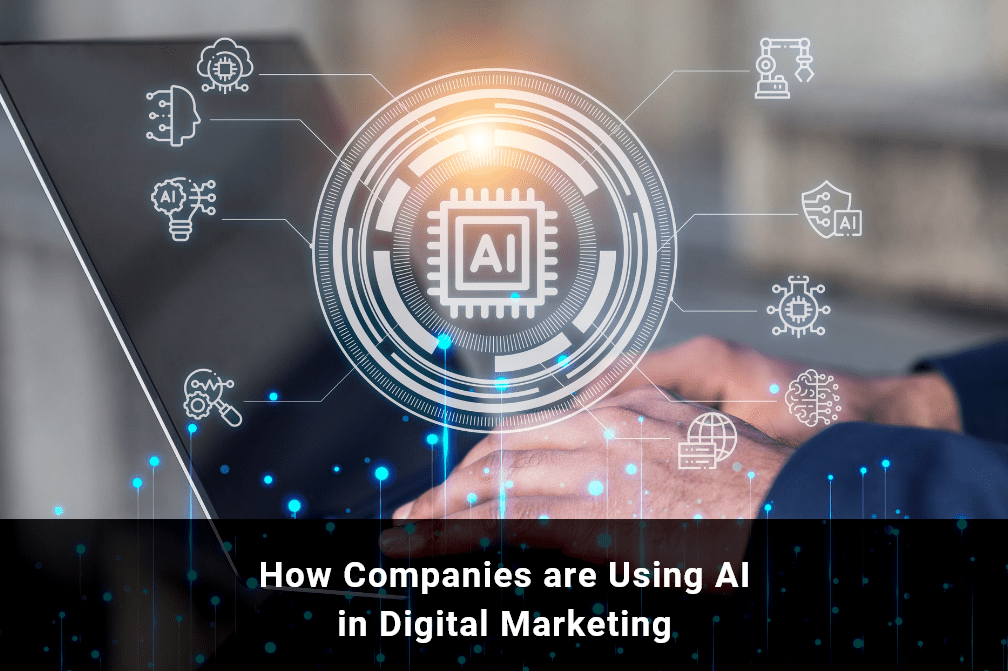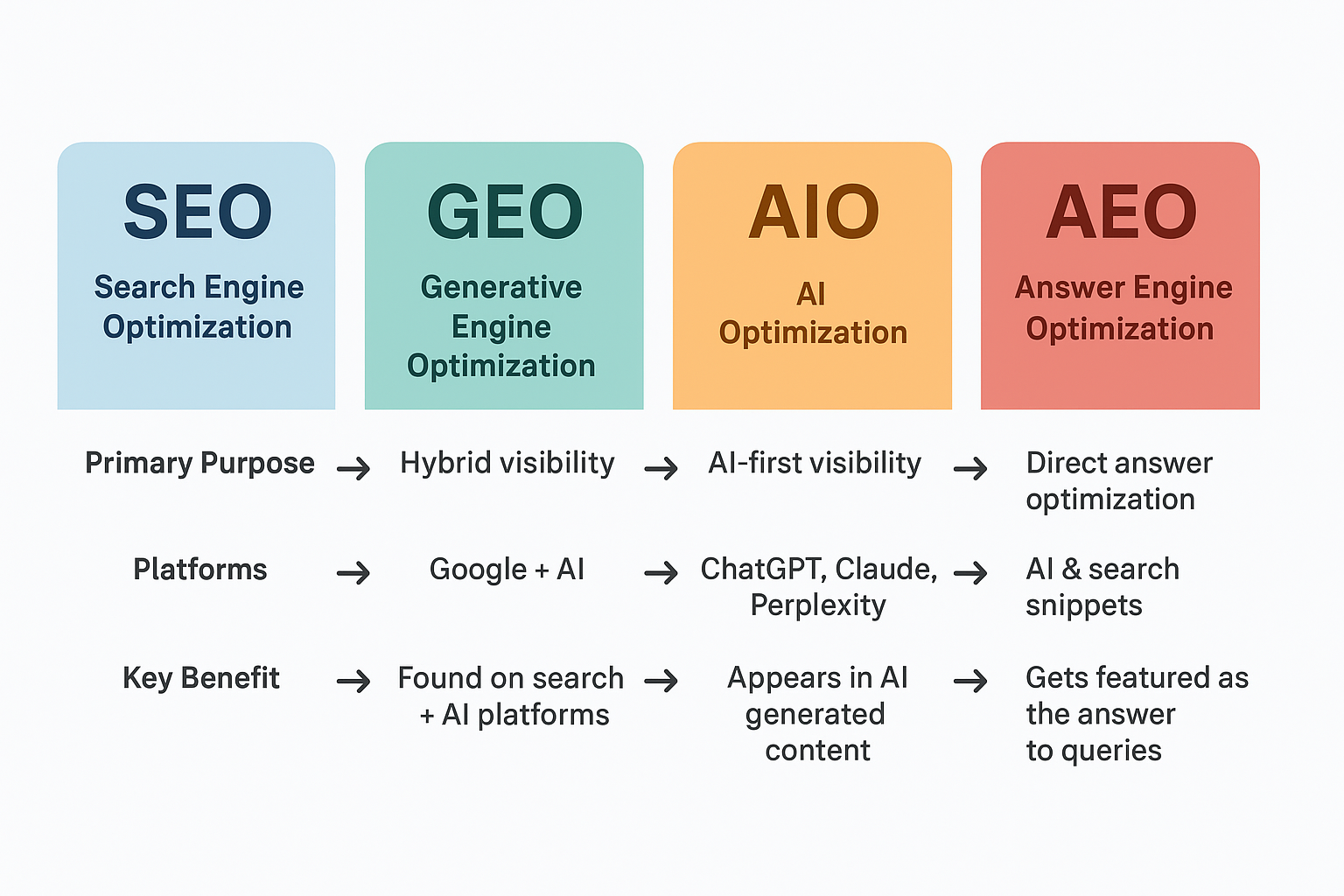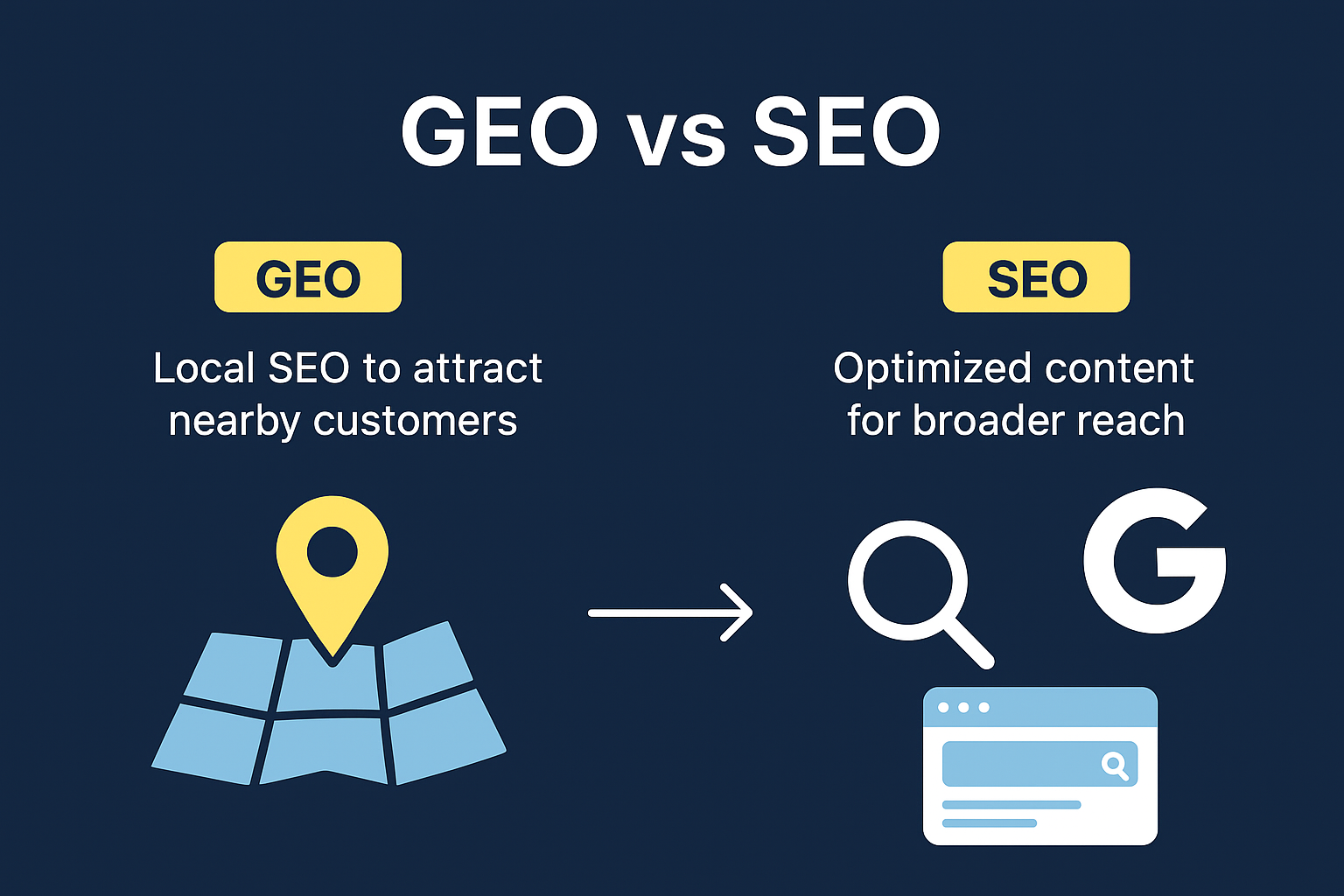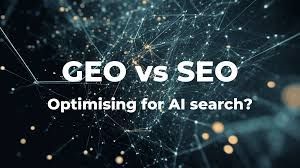SEO vs GEO: What’s the Difference?

Digital marketing is transforming fast. For years, SEO (Search Engine Optimization) has been the primary method to attract traffic from Google and other search engines. But now, GEO (Generative Engine Optimization) is emerging — a strategy focused on optimizing content for AI-driven search tools like ChatGPT, Perplexity, and Gemini.
If you want your business to stay visible, it’s essential to understand the difference between the two and how to use them together.
The way people search for information online is going through one of the biggest transformations in decades. For years, traditional search engines like Google and Bing have dominated the way people find answers — by ranking websites on search engine results pages (SERPs) based on keywords, backlinks, and authority.
But today, that model is evolving rapidly with the rise of AI-powered search tools and generative engines like ChatGPT, Perplexity, Gemini, and Claude.
💡 From Search Engines to Answer Engines
In the past, search engines acted like directories: they showed you lists of links, and you had to click through pages to find answers. Now, generative AI models give answers instantly — without requiring users to visit multiple websites.
This shift means:
- Fewer clicks to websites (known as “zero-click” searches)
- More direct answers from AI models instead of traditional search results
- Less dependence on rankings and more on brand authority and data structure
Instead of optimizing just for algorithms, businesses must now optimize for
AI systems that summarize and synthesize content.
⚡ What This Means for Businesses
This transition is why GEO (Generative Engine Optimization) is becoming as important as traditional SEO (Search Engine Optimization):
- SEO gets your business ranked on Google.
- GEO gets your business cited inside AI-generated answers.
Companies that fail to adapt may see their organic traffic decline as users stop clicking links and start relying on AI-driven tools for information.
Mobile OPZ helps businesses stay ahead of this curve by combining SEO and GEO strategies — ensuring your brand stays visible both on search engines and inside AI-driven platforms like ChatGPT and Perplexity.
🚀 The Bottom Line
Online search is shifting from finding links to delivering answers.
To stay visible, your business must appear in both search engine results and AI-generated responses.
That’s why embracing Generative AI SEO and GEO strategies with Mobile OPZ is crucial — it’s the best way to future-proof your visibility as the entire search landscape evolves.
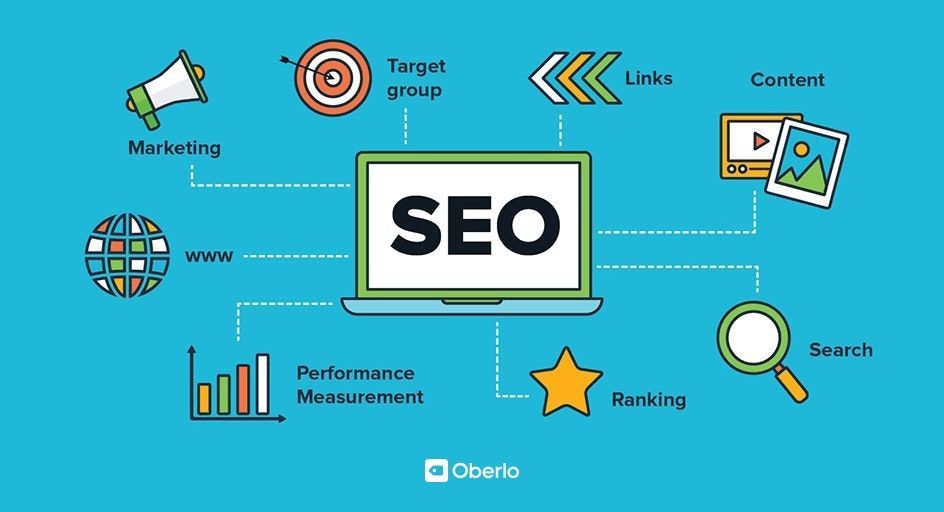
Search Engine Optimization is the practice of improving your website’s structure, content, and authority to rank higher in search results.
Key SEO Components
- On-page SEO: Optimizing keywords, headings, meta descriptions, and images.
- Technical SEO: Site speed, mobile optimization, and clean site architecture.
- Off-page SEO: Earning backlinks, social signals, and building domain authority.
Goal: Bring qualified organic traffic to your website from search engines like Google.
⚙️ How SEO Works
Search engines use crawlers (bots) to scan websites and index their content. Then, they use algorithms to rank pages based on how relevant and useful they seem.
SEO focuses on making your site more relevant, trustworthy, and user-friendly so it performs well in these rankings.
🧩 Key Components of SEO
1. On-Page SEO
- Optimizing individual pages on your site
- Includes: keyword placement, meta tags (titles & descriptions), headings, internal links, image alt text, and content quality
- Makes it easy for search engines to understand your content
2. Off-Page SEO
- Activities done outside your website to improve its authority
- Includes: backlinks from other websites, social media mentions, online reviews, and brand mentions
- Builds your site’s reputation and trust
3. Technical SEO
- Focuses on how well search engines can crawl and index your site
- Includes: site speed, mobile-friendliness, security (HTTPS), XML sitemaps, and structured data
- Ensures your site runs smoothly for users and bots
4. Content SEO
- Creating valuable, informative, and relevant content
- Using the right keywords naturally, answering search intent, and updating content regularly
- Good content is the core of SEO — it attracts users and keeps them engaged
📈 Why SEO Matters
- Increases organic (free) traffic to your site
- Improves brand visibility and credibility
- Helps you reach your target audience without paying for ads
- Has long-term results — unlike paid ads, which stop when you stop paying
🤍 White Hat SEO
White hat SEO uses ethical, search-engine-approved techniques to improve rankings.
Key Features
- Follows search engine guidelines (like Google’s Webmaster Guidelines)
- Focuses on quality content and good user experience
- Builds organic, long-term results
Common Tactics
- Creating helpful, original content
- Optimizing site structure and metadata
- Earning backlinks naturally through valuable content
- Improving page speed and mobile usability
✅ Safe, sustainable, long-term growth strategy.
⚫ Black Hat SEO
Black hat SEO uses manipulative or deceptive techniques to rank quickly, violating search engine rules.
Key Features
- Focuses on short-term gains
- High risk of penalties or deindexing from search engines
- Often prioritizes bots over human readers
Common Tactics
- Keyword stuffing (unnatural overuse of keywords)
- Cloaking (showing different content to users vs. search engines)
- Hidden text or links
- Buying low-quality backlinks
⚠️⚪ Grey Hat SEO
Grey hat SEO falls between white and black hat — it uses techniques that are not strictly forbidden but still risky.
Key Features
- Not outright illegal, but not fully compliant either
- Often tries to game the system quietly
- Can work in the short term but carries some risk
Common Tactics
- Buying expired domains with backlinks
- Aggressive link exchanges
- Slight content spinning or repurposing without adding much value
⚠️ Works faster than white hat, but not sustainable if caught.
🧠 1. E-E-A-T (Experience, Expertise, Authoritativeness, Trustworthiness)
E-E-A-T is a major part of Google’s Search Quality Guidelines.
- Experience – Content shows real-world, first-hand experience
- Expertise – Written by someone knowledgeable on the topic
- Authoritativeness – The website or author is recognized as a reliable source
- Trustworthiness – Content is accurate, transparent, and safe
🔑 Tip: Show author bios, cite credible sources, and use real data or case studies to prove your expertise and experience.
⚡ 2. Core Web Vitals
Core Web Vitals are performance metrics Google uses to evaluate user experience. They affect your rankings.
- LCP (Largest Contentful Paint): Page load speed
- FID (First Input Delay): Interactivity and responsiveness
- CLS (Cumulative Layout Shift): Visual stability
🔧 Improve by compressing images, using a fast hosting service, and optimizing code (CSS, JS).
📲 3. Mobile-First Indexing
Google now primarily uses the mobile version of your site for indexing and ranking.
- Your site must be fully responsive on all devices
- Content should be the same on both desktop and mobile
📱 Tip: Test your site on mobile to ensure it loads fast and is easy to navigate.
🤖 4. AI-Driven SEO & Search Generative Experience (SGE)
Search engines are using AI and machine learning to change how results are shown.
- Google’s SGE (Search Generative Experience) shows AI summaries above normal search results
- LLM-based tools like ChatGPT and Perplexity are becoming answer engines
- This means content needs to be optimized for AI, not just keywords
🧠 Strategy: Use structured data, answer questions directly, and build brand authority to get included in AI-generated summaries.
📈 5. Semantic & Entity-Based SEO
Search is shifting from matching keywords to understanding entities and context.
- Entities are real-world concepts like people, places, organizations, and products
- Connecting your content to these entities helps search engines understand the meaning.
💡 Tip: Use schema markup and write clearly structured content that connects related concepts.
💬 6. Helpful Content & User Intent
Google emphasizes helpful content that satisfies user intent.
- Understand why users search (informational, transactional, navigational)
- Deliver content that answers their needs quickly and clearly
📝 Tip: Use clear headings, FAQs, bullet points, and well-organized information.
🚀 SEO Summary
Trend Focus Impact
E-E-A-T
Authority, trust, experience
Improves content credibility
Core Web Vitals
Speed, interactivity, stability
Improves rankings & UX
Mobile-First Indexing
Responsive design, fast loading
Required for ranking
AI & SGE
AI-ready content
Future-proofing strategy
Entity SEO
Context & knowledge graphs
Better topic visibility
User Intent & Helpful Content
Solving user needs
Higher engagement
📌 SEO Summary
Type - Approach Risk Speed
White Hat
Ethical, user-first, Low, Slower
✅ Safe & sustainable
Grey Hat
Semi-risky, loophole-based, Medium speed, Medium
⚠️ Uncertain
Black Hat, Manipulative, rule-breaking, Very High, Fast
❌ Dangerous
Risky — can get your site banned or severely penalized.
🤖 What Is GEO?

Generative Engine Optimization (GEO) is a newer strategy. Instead of targeting search rankings, you optimize your content to be discovered and cited by AI-driven tools like ChatGPT, Perplexity, and other generative engines.
Key GEO Tactics
- Publish factual, well-structured content.
- Appear on high-authority sources AI models trust.
- Use schema markup and entity-based data to help LLMs understand your content.
- Build topical authority by covering subjects thoroughly.
Goal: Be referenced as a reliable source in AI-generated answers.
📊 SEO vs GEO: Key Differences
Feature
SEO Vs GEO
Platform Target
Search engines (Google)
Generative AI (ChatGPT, Perplexity)
Objective
Rank high on SERPs
Be cited in AI answers
Primary Signals
Keywords, backlinks, technical SEO
Structured data, factual authority
Result
More website visits
More brand visibility in AI responses
⚡ Generative AI SEO: The Hybrid Approach
Generative AI SEO blends SEO and GEO. It ensures your content is visible to both Google and AI systems.
Tips for Generative AI SEO
- Use FAQ sections, schema, and structured data.
- Publish on reputable platforms to gain authority.
- Write clearly and factually so AI can extract accurate information.
- Build topic clusters around your expertise.
This approach helps you stay visible in both traditional search results and AI-generated answers.
🧠 What It Is
Generative AI SEO (Hybrid Approach) combines traditional SEO techniques with Generative Engine Optimization (GEO) strategies to ensure your content performs well in both:
- Traditional search engines (Google, Bing)
- AI-powered generative search systems (ChatGPT, Google SGE, Perplexity, Claude, etc.)
This hybrid approach recognizes that users are now splitting their searches between regular search engines and conversational AI systems, and you need visibility in both.
⚙️ How the Hybrid Approach Works
1. Traditional SEO Foundations
- Keyword research, metadata optimization (titles, descriptions, H1s, etc.)
- Technical SEO: site speed, mobile-friendliness, crawlability
- Link building and domain authority growth
- E-E-A-T (Expertise, Experience, Authoritativeness, Trustworthiness) signals
Goal: Get high SERP rankings and organic clicks.
2. Generative SEO (GEO) Layer
- Optimize content around clear entities (people, products, brands, places) to feed AI knowledge graphs
- Use structured data (schema.org) to make meaning machine-readable
- Add Q&A sections, summaries, and bullet points so LLMs can easily extract facts
- Build brand presence across the web (mentions, interviews, thought leadership)
- Continuously monitor how AI models mention your brand and correct inaccuracies
Goal: Get your content referenced or cited in AI-generated answers.
📈 Why This Matters
- Users are moving from “search and click” to “ask and get answers.”
- AI systems are becoming gatekeepers to web content.
- Relying on SEO alone risks losing visibility if AI models summarize without clicking through to your site.
By blending SEO (for search rankings) and GEO (for AI citations), the hybrid approach future-proofs your content strategy.
📝 Example Workflow
- Research keywords and knowledge gaps AI systems have in your niche
- Create authoritative long-form content that ranks on Google
- Break down that content into AI-friendly structured snippets
- Track both SERP rankings and AI answer mentions to optimize further
🧠 Why GEO Matters for Local Businesses
Generative engines are rapidly changing how people find local information. Instead of browsing websites, users now ask AI tools for direct recommendations.
- AI engines summarize answers without showing links.
- If your business isn’t mentioned in reliable sources, you may be invisible to AI.
- GEO helps make sure your brand is included in AI responses, increasing trust and reach.
⚙️ AI Search Engine Optimization Checklist
Use these steps to prepare your business for the future:
- Strengthen SEO basics: Fast site, mobile-friendly, keyword-rich content.
- Add structured data: Implement schema markup and local business data.
- Boost authority: Earn reviews, backlinks, and citations from local and niche sites.
- Publish helpful content: Answer questions, use Q&A formatting, and provide original insights.
- Track your presence in AI tools: Monitor mentions of your brand in ChatGPT or Perplexity results.
💼 Generative Engine Optimization Services
New services are emerging to help businesses with GEO:
- Entity SEO platforms help integrate your brand into knowledge graphs.
- Citation tools monitor how often your brand is mentioned online.
- Content enrichment services format your posts for AI-friendly consumption.
Hiring experts in Artificial Intelligence Search Engine Optimization can accelerate your visibility in AI-driven search.
Generative Engine Optimization (GEO) services are a new class of digital marketing and content services designed to optimize your online content for AI-driven generative search engines, like ChatGPT, Google’s SGE (Search Generative Experience), or Perplexity — instead of only traditional keyword-based search engines like Google Search.
Here’s a breakdown of what GEO services involve:
⚙️ Key GEO Tactics
- Entity & Knowledge Graph Optimization
Structure your content around clear entities (people, companies, products, places) so AI systems can associate your brand with relevant topics. - Structured Data Markup
Use schema.org and other semantic markup to help AI understand your content’s meaning, not just its keywords. - High-Evidence Authoritative Content
Create detailed, well-sourced content (with stats, citations, and expert commentary) that LLMs are more likely to trust and surface. - Brand Mention Seeding
Place consistent mentions of your brand and offerings across reputable sites, forums, and publications to boost your visibility in the training corpus of generative systems. - AI Snippet Engineering
Craft content in formats LLMs favor, like Q&A sections, concise definitions, bullet-point summaries, and comparison tables. - Monitoring & Response Optimization
Track how generative engines currently represent your brand, and regularly adjust content to fix hallucinations or missing data.
📈 Why GEO Matters
- Rising AI Search Adoption: More users are asking LLMs instead of Googling.
- First-Mover Advantage: Early adoption helps your brand become the “default answer” AI cites.
- Reputation & Trust: Proper GEO reduces misinformation about your brand in AI-generated answers.
- Traffic Diversification: It future-proofs your content strategy beyond traditional SEO traffic.
💼 Who Offers GEO Services
A typical GEO services provider might offer:
- Auditing your existing content for generative readiness
- Building a knowledge graph of your brand
- Creating and optimizing AI-ready content
- Managing offsite brand signals and structured citations
- Reporting on AI mentions and visibility metrics
📈 Search Engine Optimization Strategies for 2025 and Beyond

To stay competitive:
- Build pillar pages and topic clusters around your main services.
- Use Q&A style content to match voice and AI queries.
- Keep your Google Business Profile updated with accurate info and posts.
- Refresh and update old content frequently to stay relevant to both search engines and AI.
Search Engine Optimization Strategies for 2025 and beyond. As we look to the future of digital marketing, it's essential to stay ahead of the curve when it comes to Search Engine Optimization (SEO).
The SEO landscape is continuously evolving, driven by advances in technology, changes in user behavior, and significant updates to search engine algorithms. This blog will explore crucial SEO strategies that will be vital for online search success in 2025 and beyond.
1. Emphasizing User Experience (UX). User experience has become a critical ranking factor. Search engines are designed to serve the interests of users, meaning that sites with high-quality, user-friendly experiences will be favored. This includes fast load times, mobile responsiveness, easy navigation, and engaging content. Implementing a seamless UX across your website should be a top priority.
2. Prioritizing Mobile-First Indexing. With over a half of the global web traffic coming from mobile devices, optimizing for mobile-first indexing is no longer optional. Websites need to be designed with mobile users in mind, ensuring that content is easily accessible and visually appealing on smaller screens. As Google continues to adjust its algorithms to prioritize mobile versions of content, a mobile-first strategy will be essential.
3. AI is transforming the way we approach SEO. Tools utilizing AI can analyze vast amounts of data to identify trends, optimize content, and enhance keyword strategies. AI search innovations such as natural language processing and machine learning (ML) will allow businesses to create more relevant content tailored to user intent, fast. Embracing AI will provide a distinct advantage in understanding and anticipating consumer behavior.
4. Investing in Video Content. Video is becoming increasingly dominant in content consumption. Integrating video into your SEO strategy can boost engagement and improve search rankings. Video content should be optimized with relevant titles & keywords, engaging thumbnails, and proper tags. Live videos and interactive content also contribute to enhanced user engagement, further signaling to search engines the quality of your website.
5. Focusing on a very important aspect of Voice Search Optimization. With the rise of smart speakers and voice-activated devices, optimizing for voice search, like Siri & Alexa is becoming necessary. Unlike traditional text-based searches, voice searches tend to be more conversational.
Accordingly, SEO strategies must adapt by incorporating long-tail keywords and natural language phrases to capture these unique queries.
6. Building Authority Through Quality Backlinks. Backlinks remain a crucial pillar of SEO, but the emphasis will shift towards quality rather than quantity.
Establishing authority through reputable and relevant backlinks can significantly aid in improving search rankings. Backlinking strategies such as guest blogging, influencer collaborations, and content partnerships will be pivotal in building a robust backlink profile.
7. Structuring Content for Featured Snippets. Featured snippets are an increasingly common way for users to receive immediate answers from search engines. Structuring your page and blog content to answer common questions concisely can help increase your chances of being featured. Use bullet points, numbered lists, and clear headings to enhance your site's visibility in these coveted top spots.
As we head into 2025, adapting your SEO strategies to reflect these emerging trends will be essential for building and maintaining an online presence.
By focusing on user experience, mobile optimization, AI advancements, interactive content, voice search, quality backlinks, and snippet optimization, businesses can stay competitive in an ever-evolving digital landscape. For personalized advice and solutions tailored to your business, feel free to reach out to Mobile OPZ at 720-492-9625.
What is SEO?
SEO (Search Engine Optimization) is the process of improving your website’s visibility in search engines like Google. It involves optimizing content, site structure, and backlinks to increase organic traffic.
Mobile OPZ offers SEO strategies that help businesses rank higher, attract more local customers, and grow online visibility.
What is GEO?
GEO (Generative Engine Optimization) is the practice of optimizing your content so it’s recognized and cited by AI-powered platforms like ChatGPT, Perplexity, and Gemini.
Mobile OPZ helps businesses build factual, structured content that AI models can easily understand and reference.
How is SEO different from GEO?
SEO targets search engine rankings, while GEO targets AI-generated answers. SEO relies on keywords and backlinks, while GEO focuses on structured data, authority, and brand mentions.
At Mobile OPZ, we combine SEO and GEO strategies to help your brand win visibility on both Google and AI platforms.
What is Generative AI SEO?
Generative AI SEO blends SEO and GEO — it ensures your content performs well on Google and is also retrievable by AI tools.
Mobile OPZ specializes in creating content clusters, schema markup, and authority signals to boost your visibility in both worlds.
What are Generative Engine Optimization Services?
These are services designed to improve your brand’s presence in AI-driven search results. They include entity optimization, content structuring, and citation building.
Mobile OPZ provides end-to-end Generative Engine Optimization Services to future-proof your brand’s digital footprint.
Why does my business need AI Search Engine Optimization?
AI-driven tools are changing how people discover businesses. If your brand isn’t mentioned or cited in AI systems, you could be invisible to future customers.
Mobile OPZ helps ensure your business is recognized, cited, and recommended by emerging AI platforms.
How can I start improving my SEO and GEO today?
Begin by auditing your existing website for SEO basics (speed, content, structure) and plan a GEO strategy (structured data, factual content, brand authority).
Mobile OPZ offers free consultations to map out a winning strategy tailored to your business.
The future of search won’t be just about who ranks #1 on Google — it will be about who gets mentioned by AI.
With Mobile OPZ, your business gets the best of both worlds:
- Proven SEO strategies to dominate traditional search
- Cutting-edge GEO methods to appear in AI-generated results
This combined approach ensures your brand stays visible, competitive, and profitable as search evolves.
📍 Want to secure your place in the future of search?
Contact
Mobile OPZ
at 720-492-9625 today to start your SEO + GEO strategy.
This is paragraph text. Click it or hit the Manage Text button to change the font, color, size, format, and more. To set up site-wide paragraph and title styles, go to Site Theme.


